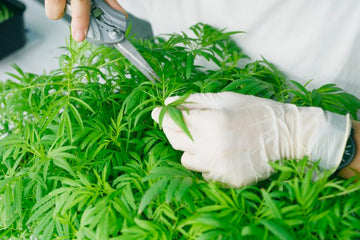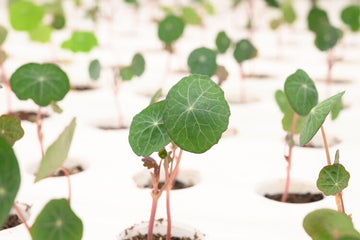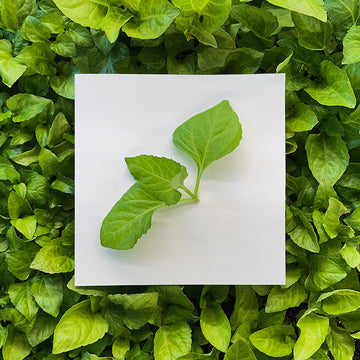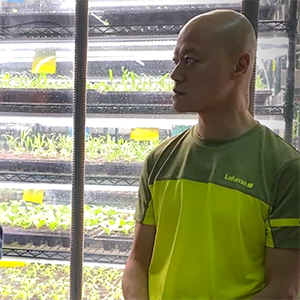
When I got a random email from Diamond (who gave up a successful career as a hedge fund manager, and invested in studying horticulture full time for 2 years in the UK) offering to work two days for us for free, I was baffled, surprised, I thought it was a joke and it must be too good to be true. “Someone wants to work with us, give us his most valuable asset (time) AND for free?! Wait, what? Wow!”
Our team is passionate, enthusiastic, inquisitive, hard-working but nonetheless, young. I felt we didn’t have a whole lot to offer Diamond but, somehow, he gave more than 190 hours of his time (this doesn’t even include his commute from Sai Kung to Aberdeen!) to grow and build Common Farms. Every Tuesday and Thursday for three months straight. He was always fully there with us including sowing and harvest, regular sanitation processes and imparting horticultural knowledge.
Having Diamond work with us as a volunteer has been undeniably humbling, rewarding, and grounding for our team … certainly for myself who lead Common Farms to be at the service of Hong Kong and to make it greener in any way we can.
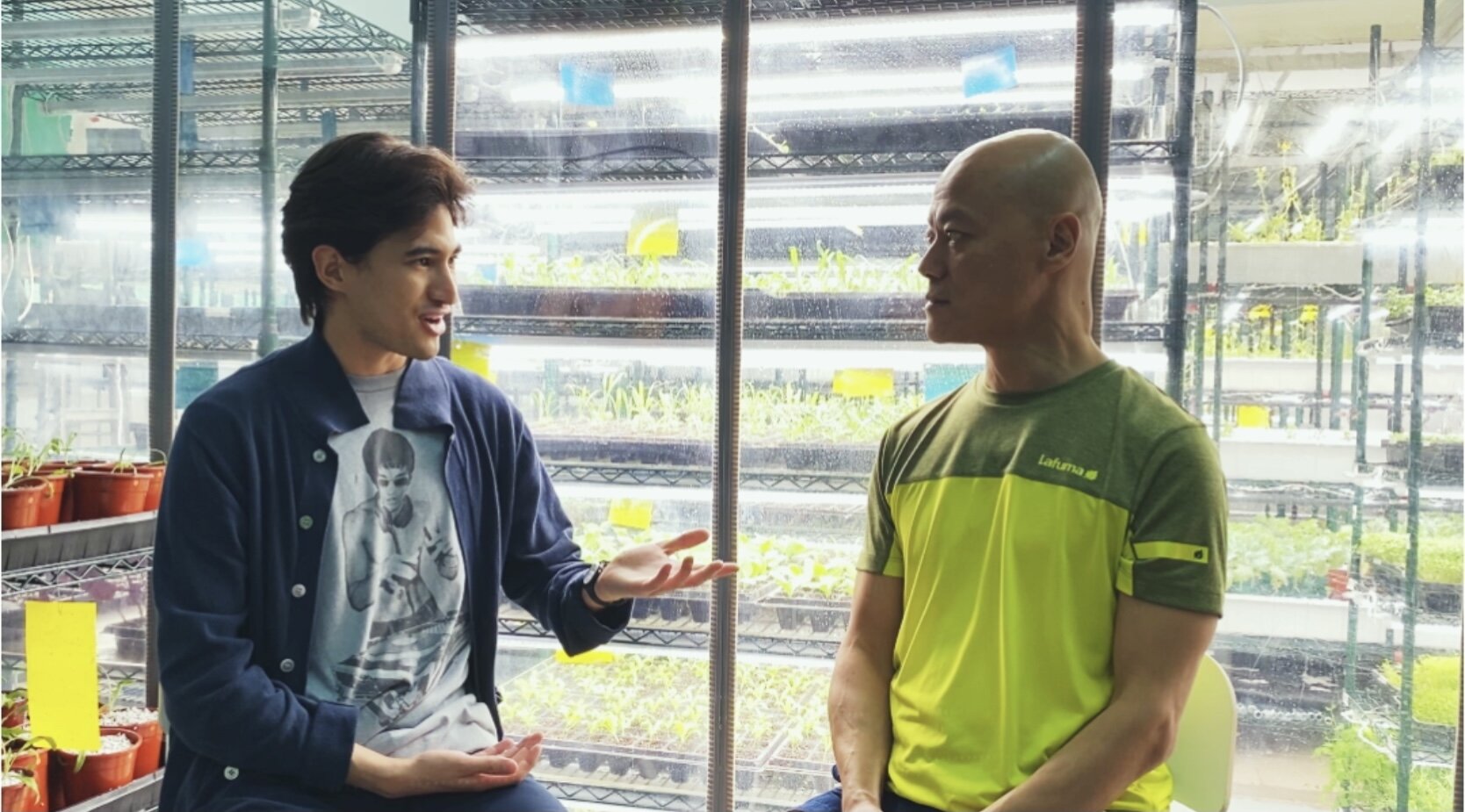
Common Farms’ Alex Kieran conducted the interview with Diamond.
How are plants and investment funds similar? Both require planning, disciplined execution, perseverance, and skill to grow. Few people understand this more than Diamond Lee, a horticulturist who was previously a successful hedge fund manager in Hong Kong.
The founder of City Garden Foundation spent time with us — after consultations twice a week, eight hours a day for over two months — to share the story of his leap from finance to farming.
"I was a fund manager for 22 years," Diamond shared. "The industry has been very good to me. I worked with many intelligent, able people, in a genuinely stimulating environment."
The region then was going through an exciting period of evolution. "Asia was still at the point where you can meet directors and founders who are now billionaires," Diamond shared. "Some of them were farmers and worked all the way to the top. I could still meet those people, but now less so. I was lucky enough to do that, all over Asia. I had an excellent time and learnt so much."
Despite his success, two decades proved too long for just one thing. "There comes a time when you know your job so well, that whatever problems were thrown your way, you could handle it. And it wasn't a challenge anymore.
"You get to a peak, and there's no higher around you that you feel excited about going to. When it gets to that point, I think it's important to move on and keep on learning in life."
For Diamond, it meant a jump to another sector. "I gradually grew less excited about the finance industry. Towards the end I did angel investment for a while, working with young startups with two to ten staff."
His interest gravitated toward helping small teams focused on finding solutions to key issues. "I worked with a rocket scientist, for instance. He was a genius in the field of rocket propulsion technology."
While working with startups, Diamond found a spark similar to his early days in fund management. In the long run, however, it could not be sustained, especially for an individual whose plans excluded retirement. "I thought I could do it for maybe five years. But I couldn't do it for twenty or thirty years" he said.
"I wanted to find something that I could really buy into and do forever. Angel investing was fine, but I didn't have a genuine passion for it."
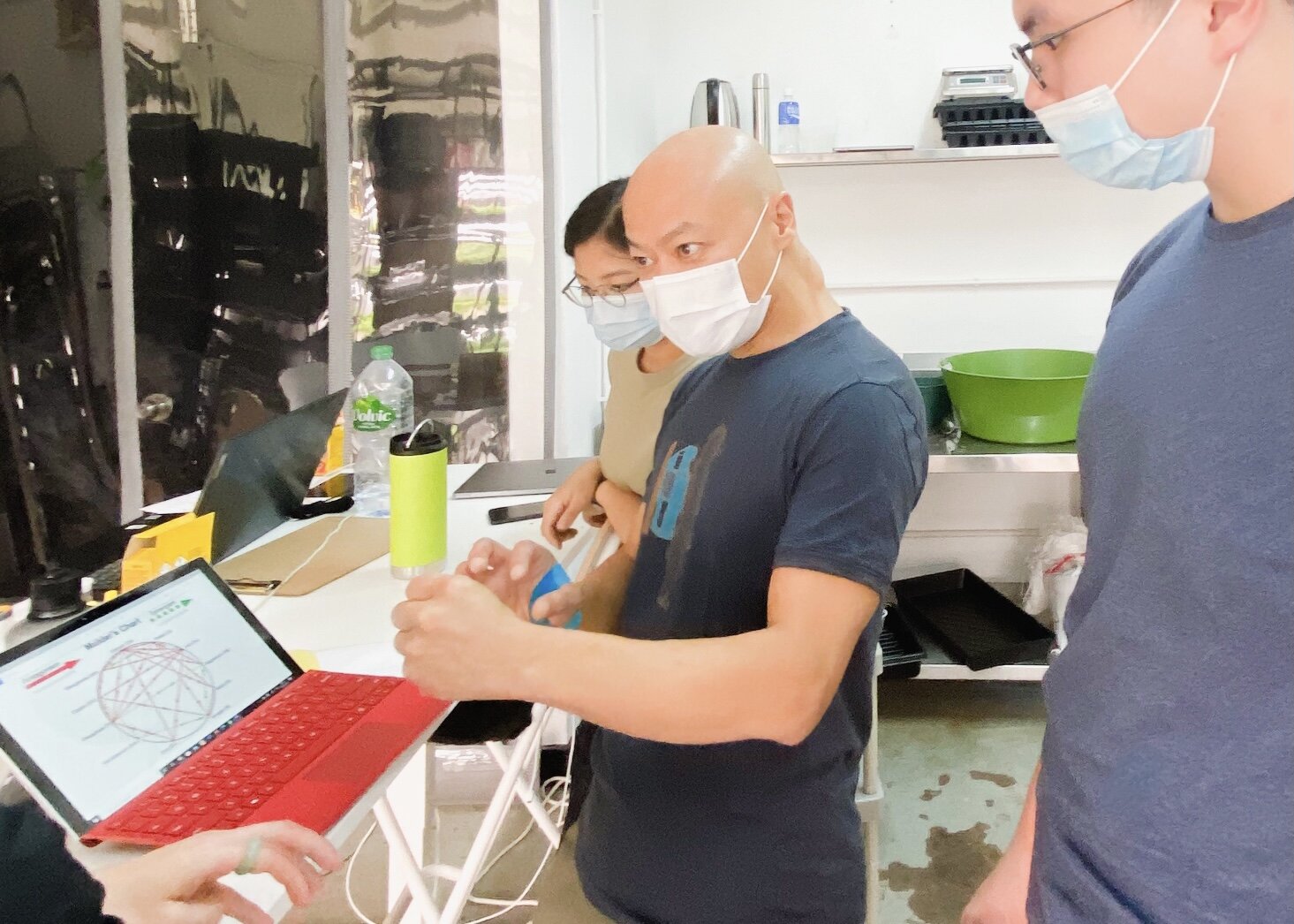
Hard at work with the team.
As it turns out, another activity fulfilled this requirement. "I've always grown things as a hobby. I used to grow tomatoes, cauliflower, and other stuff on my balcony. I didn't know it would ultimately turn into a career. It was just a hobby.
"I sat down after fund management and angel investing to think about what actually is the next thing that I genuinely have a passion for, that would be meaningful to me. After a lot of soul searching, that thing was horticulture."
While certainly a worthwhile pastime, another requisite had to be met. "You have to anchor it to something more solid," he said. "What is the purpose of the next venture?"
The answer, in fact, was all around him: the concrete jungle of Hong Kong.
“It is often said that Hong Kong needs a broader base of development to compliment the traditional industries of finance, tourism, and retail. But so far it has not happened.
“For long-term robustness of the city, Hong Kong needs other sectors to thrive. We need software programmers, musicians, engineers ….. people who make things. We don't need any more lawyers, bankers, and consultants.
"For me, I thought I could contribute on the greening side. And that ties in with growing plants. I could contribute by growing the sector."
Such an undertaking is by no means a one-man job. Making the Fragrant Harbour more verdant will require a collective effort from a dedicated portion of its seven and a half million residents.
Farmers, he observed, are typically sixty or seventy years of age. Curiously, they are often followed by the twenty-year-olds, with very few people from the generation in the middle. These youngsters, he believes, will be the future, taking over.
"Older farmers can now hand on their skill and knowledge to a younger generation."
For young adults to discover horticulture's appeal is a crucial aspect, albeit just one among many. "In order to grow the sector, you have to create a buzz and make it cool, that's one thing. But also, we need to make it profitable so more jobs in the sector will be created. We can't rely on Jockey Club funding or something like that. That's not sustainable. The sector needs to make money. We need to revolutionise so that the traditional farming sector becomes more profitable and therefore it grows organically."
Another pillar is a healthy internal dynamic within the farming community. Fostering an open and friendly culture devoid of politics would make it attractive to new entrants, he shared. The mentality of connecting and sharing with each other, Diamond believes, is indispensable, where "growing the pie" is far more important than “fighting over slices".
"This sector is small and we all need to help each other out," he said. "In Silicon Valley, people working in startups network and introduce each other to their own contacts. They do it in a conscious and generous way."
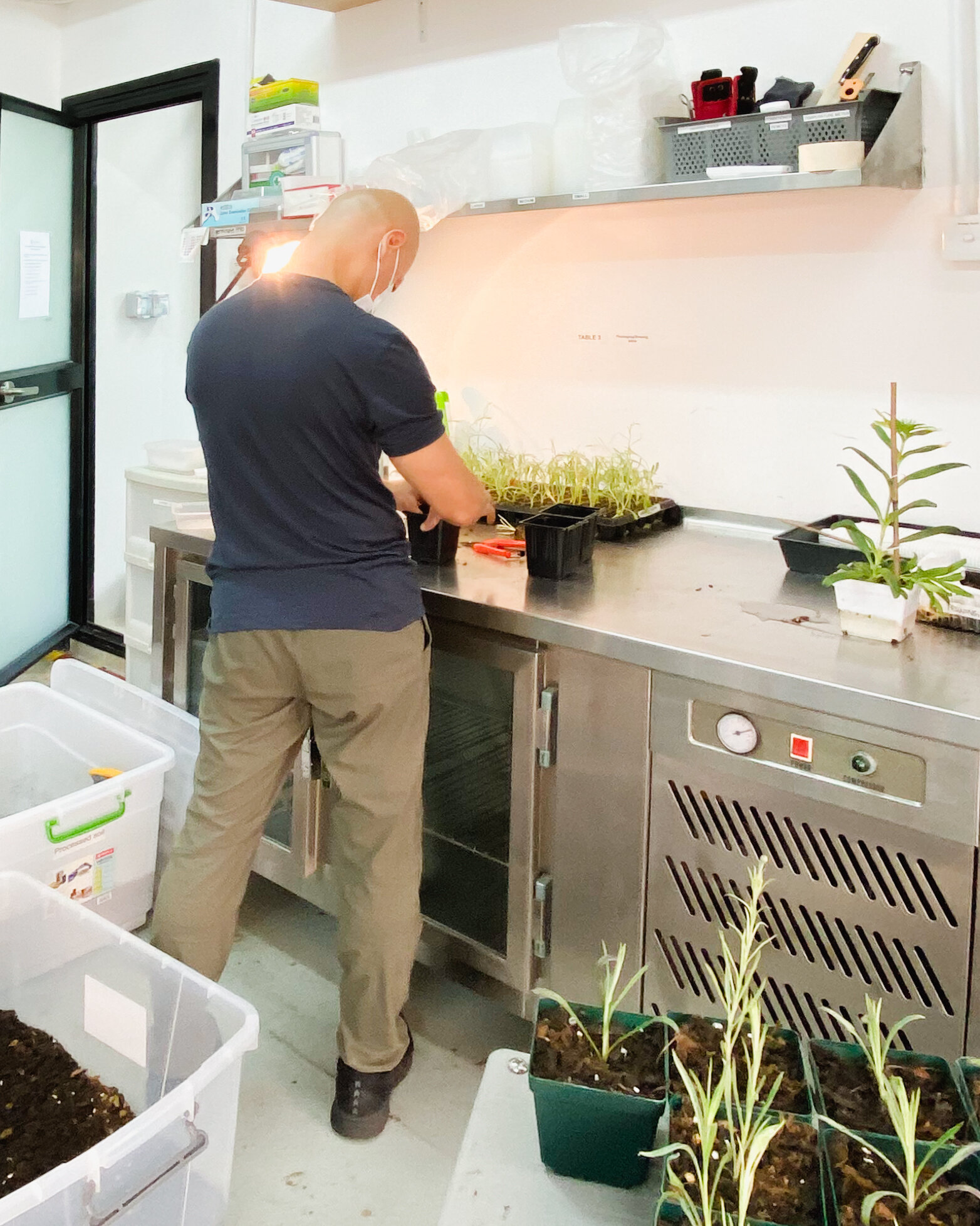
Diamond transplants cornflower seedling to potted plants.
There are encouraging signs of change despite difficulties presented by Covid. For example, people’s priorities have shifted.
"Because of downturn in the economy, there are a lot more young, talented people available in the labour pool. So you get people who are interested in growing but also good at writing software, social media. You can double up the skills. Now, people are much more receptive to trying other things."
Diamond draws many parallels between horticulturists and entrepreneurs. They function on the same blueprint of trial and error, constantly recalibrating, pivoting to improve the formula.
"It's amazing how far you can get from experimentation," he said, before later fondly sharing the outcome of his earliest attempts. "In my first go, I got maybe ten tomatoes after tending to them for about three months. Although they tasted heavenly, so much better than those bought from supermarkets, it wasn't very successful in terms of crop yield."
Recognising the importance of skill and knowledge, he flew to the UK to study horticulture. "I needed to have an accelerated pace of change," Diamond said.
Critical lessons were imparted at the very first class. "We had to dig a trench, about two metres deep, ten metres long. Two points — the first point was: 'Are you sure you want to be doing this?' It was January in England and it was something four degrees outdoors. There is physical labour involved.
"The second point is that, even in the simple act of digging, there is knowledge and science behind it – in what conditions should you dig, when is it better not to dig, how deep, what is the most efficient way to do it, what do you do once you have dug it. And that's what good horticulture practice is, which gets the high crop yield that you're after. It's not one magic solution — it's lots of little things that cumulatively enable you to grow healthy and productive plants."

